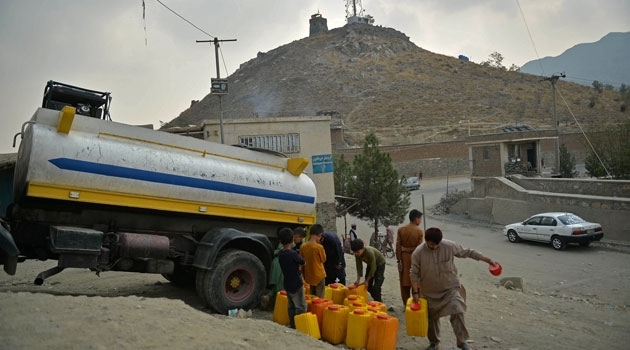Less violence but uncertain future in Afghanistan
The civil war in Afghanistan has been one of the world’s longest and bloodiest conflicts. Since the Taliban took power on 15 August, the situation has become calmer, but the future remains uncertain. “One worrisome trend is the restrictions on the freedom of people, especially women, which they have imposed in just over a month,” says Therese Pettersson.
the Uppsala Conflict Data Programme (UCDP).
Photo: Mikael Wallerstedt
Therese Pettersson is the research coordinator at the Uppsala Conflict Data Programme (UCDP) and has been following the situation in Afghanistan since 2011.
How dangerous is it really for the people of Afghanistan?
“The picture is complex, because even though there has been some fighting since the Taliban took Kabul, violent conflict has largely disappeared for the time being. This has had a huge impact on the people of Afghanistan, since it has had the world’s most violent conflict for many years. Many have died as a result of road mines, suicide attacks and air strikes.”
At the same time, the Taliban’s rule is much harsher than that of the previous government. There are reports of journalists being beaten when they cover demonstrations, and there have been more and more restrictions on how people may behave in society.
“Something new happens almost every day. One worrisome trend is the restrictions on the freedom of people, especially women, which they have imposed in just over a month.”
Sharp increase in violence
For several years, she and her colleagues have reported on the deadly violence in Afghanistan, one of the world’s longest and bloodiest conflicts.
“We have seen a very sharp increase in violence since 2013, when most of the international forces withdrew and the Afghan forces assumed more responsibility for security. They have had difficulty maintaining control in the country.”
Since 2013, the Taliban have taken more and more territory year by year. And most fighting occurs when a province is in dispute, and it is unclear who is in control.
“Violence has increased every year. We saw a slight decline in 2020 after the so-called peace agreement between the United States and the Taliban, but this year it has broken new records. We saw more deaths due to combat in Afghanistan up until 15 August than in all last year.”
International involvement
The situation has been greatly affected by interference in the conflict by other governments. Research has shown several examples of this.
“Conflicts become more difficult to resolve when there are more interested parties and they become bloodier. Conflicts with this type of intervention by other countries tend to be more violent because they provide resources like weapons and air support.”
The Uppsala Conflict Data Programme (UCDP) collects data on all the world’s conflicts. Ten to 15 people work here, collecting data from local and international media, human rights organisations and other sources. The data is used throughout the world by decision-makers, journalists and organisations like the United Nations and the World Bank. An important user group is researchers, who are interested not only in peace and conflict studies, but also fields like biodiversity and public health research.
A gradual development
The latest development in Afghanistan did not come as a complete surprise for Therese Pettersson.
“Although the Taliban took power very quickly in the end, we have seen a gradually deteriorating security situation for many years. That fact that events proceeded so fast in the last few weeks surprised me, and it probably surprised a lot of people who follow Afghanistan. But the Taliban’s ability to seize power in Afghanistan was not unexpected.”
What could happen in the future?
“I find it hard to imagine that any armed group could threaten the Taliban, at least in the short term. At the same time, there is popular opposition to this strict rule. Many have said that the Taliban have not changed that much in 20 years, but the Afghan people probably have changed. We see women demonstrating in many cities, even though they know they are risking their lives.”
Annica Hulth
The Uppsala Conflict Data Program (UCDP)
The Uppsala Conflict Data Program (UCDP) is the world’s main provider of data on organized violence and the oldest ongoing data collection project for civil war, with a history of almost 40 years. Its definition of armed conflict has become the global standard of how conflicts are systematically defined and studied.

